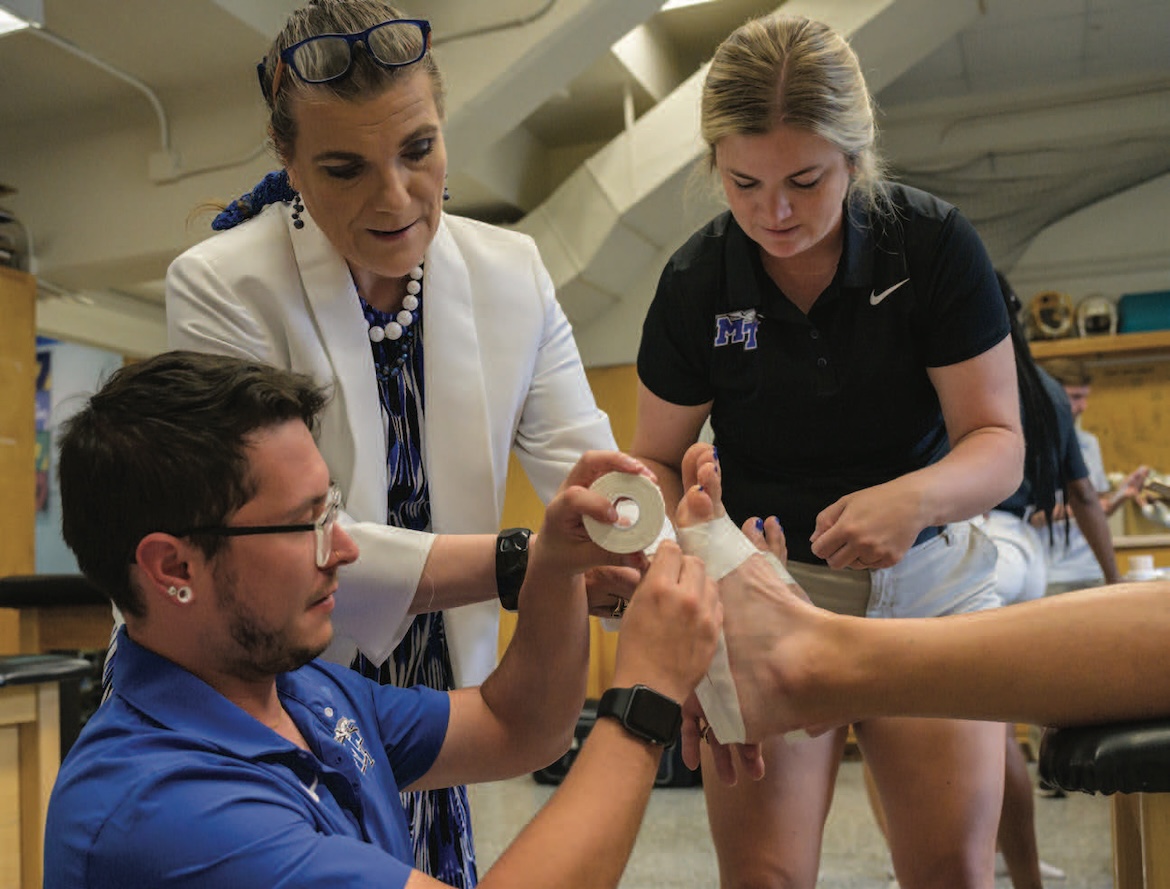ATHLETIC TRAINER TRAINING
When Buffalo Bills safety Damar Hamlin collapsed midgame in January 2023, the team’s athletic trainers helped resuscitate him and keep him stable until an ambulance arrived. That high-profile moment illustrated how these professionals can serve as “physician extenders,” and why they’re in demand on and off the playing field.
Athletics trainers are responsible for the prevention, assessment, treatment, and rehabilitation of injuries in any physically active population, said Kristi Phillips, clinical coordinator for Athletic Training. They work in industry, in the military, even in the performing arts.

To attract more students and higher pay, the profession now requires a master’s degree, Phillips said. So MTSU is phasing out its three-year undergraduate program and replacing it with a two-year master’s track. The first cohort started last summer.
The graduate students will have clinical experiences with an athletic trainer and practicum hours with a physical or occupational therapist or chiropractor. Once their coursework is complete, they’ll have a full-immersion experience, which wasn’t available to undergraduates, Phillips said.
“They’ll see what it’s like to live a day in the life of the athletic trainer in all aspects, rather than just going to class all morning and then going to clinical in the afternoon,” she said.
FOOD AS MEDICINE
Registered dieticians must also now meet higher academic standards. A 1,000-hour internship and a master’s degree are now required for national licensure, said Janet Colson, coordinator of Nutrition and Food Science. In response, MTSU created a Master of Professional Studies in nutrition, partnering with Murfreesboro-based National HealthCare as well as two out-of-state companies to provide in-person or distance internship opportunities.

Hospitals, nursing homes, and many private physician offices are required to have a registered dietician to work with patients with diabetes, renal disease, or other conditions requiring medical nutritional therapy, Colson said.
But a master’s degree isn’t necessary to get a good job improving lives through nutrition and wellness, she added. Between its five bachelor’s degree concentrations, graduates in Nutrition and Food Science are employed as health coaches and health inspectors, leading community weight-loss programs, developing restaurant menu items, and even working for pet food companies.
Graduates of the Family and Consumer Sciences Community Education concentration are in especially high demand, she said. Across the country, health departments and agricultural extension services hire them to teach nutrition classes and canning trainings and lead community wellness programs. A newly added fifth concentration expands on that by adding teacher licensure for secondary education.
—Allison Gorman

COMMENTS ARE OFF THIS POST